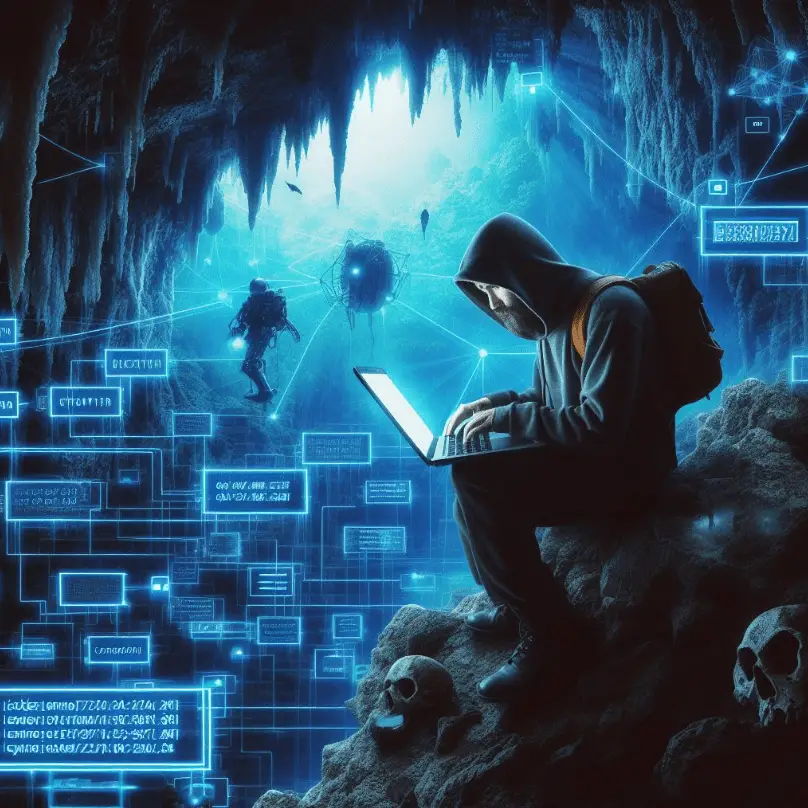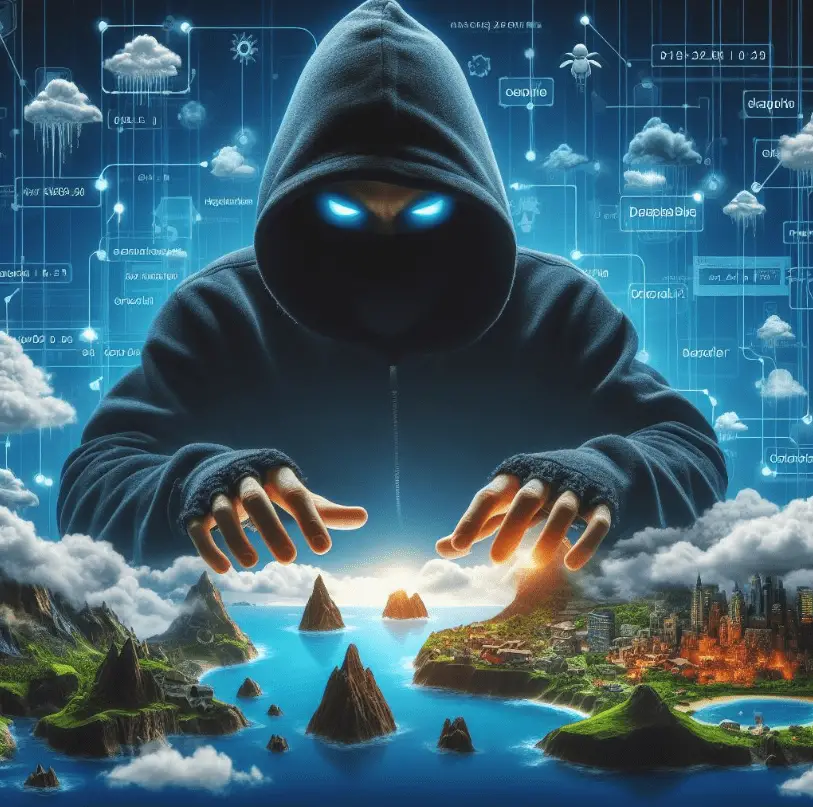Wordle, the addictive word puzzle game that swept the internet by storm.
As Wordle became super popular, lots of other games like it started popping up. They look and play a lot like Wordle. Now, The New York Times is stopping these copycats using the rules about owning ideas.
The Wordle Craze
When Josh Wardle made Wordle in 2021, lots of people loved it. Many players enjoyed trying to guess a five-letter word in six tries. But when something becomes popular, others make similar things.
Like Nerdle for math, Worldle for geography, Heardle for music, and even Taylordle for Taylor Swift fans. People got really creative, but there were also lots of copies.
The NYT’s Legal Offensive
In 2022, The New York Times bought this from someone named Wardle. Now they want to keep this game special. They told lots of people to stop making copies of this, not just one copy but almost 2,000 copies! These copies came from a place where people share ideas for making games online.
The NYT’s Wordle copyright encompasses the game’s distinct elements:
- The 5×6 grid
- Green tiles indicating correct guesses
- Yellow tiles for the correct letter but in the wrong position
- The keyboard directly beneath the grid
The DMCA notice asserts that these clones infringe on the same level as the parent repository.
A Familiar Tune
The New York Times has fought against games copying Wordle before. They shut down sites where people could play old Wordle puzzles in 2022.
Also, earlier this year, they took action against two more websites on GitHub. Chase Wackerfuss, who made Reactle, doesn’t understand why they’re upset. He thinks Wordle is as simple as Tetris or playing cards.
But the New York Times is determined to protect their game from copies. So, if you’re thinking of making a Wordle copy, be aware that the New York Times is paying attention, and they’re ready to use their legal power.

What are the legal implications for game clones?
Game clones, which are like twins of famous games, have to be careful not to copy too much. This can cause legal problems. Let’s talk about the rules about making these similar games.
- Intellectual Property (IP) Rights:
- Copyright: Original game creators hold copyright over their work. Cloning a game can infringe on this right.
- Trademark: Game titles, logos, and distinctive features can be trademarked. Clones using similar names or logos may face legal challenges.
- Fair Use Doctrine:
- Transformative Use: If a clone significantly transforms the original game (e.g., parodies, critiques), it might qualify as fair use.
- Commercial Purpose: Clones created for profit are less likely to be considered fair use.
- Lawsuits and Legal Battles:
- Cease and Desist Letters: Original developers may send these letters to clone creators, demanding they stop distributing the clone.
- Digital Millennium Copyright Act (DMCA): Platforms hosting clones can receive takedown notices under the DMCA.
- Court Cases: Some clones face lawsuits. The outcome depends on factors like similarity, intent, and jurisdiction.
- Public Perception and Reputation:
- Cloning can harm a developer’s reputation. Players may view clones as opportunistic or lacking creativity.
- Original creators may lose revenue due to clones diverting players’ attention.
- Open Source and Licensing:
- Clones based on open-source projects must adhere to the project’s license terms.
- Copyleft Licenses (e.g., GPL) require derivative works to be open source as well.
- Ethical Considerations:
- Cloning can stifle innovation by flooding the market with replicas.
- Balancing inspiration and imitation is crucial.
Basically, when people make copies of games, it can be enjoyable and remind us of the past. But they need to be careful about the law. It’s important for them to talk to legal experts and show respect to the original games they’re copying.🎮🔍

How can developers create unique games without infringing on copyrights?
Making new games without copying others is important so that people can be creative and avoid getting into trouble with the law. Here are some ways game makers can do this:
- Original Concepts and Mechanics:
- Inventive Gameplay: Focus on novel game mechanics, puzzles, or interactions. Think beyond existing genres and explore uncharted territory.
- Unique Themes: Choose themes, narratives, and settings that haven’t been extensively explored. A fresh perspective can lead to innovative gameplay.
- Art and Aesthetics:
- Distinctive Art Style: Develop a visual identity that sets your game apart. Whether it’s pixel art, hand-drawn illustrations, or 3D models, make it memorable.
- Custom Assets: Create original sprites, textures, and animations. Avoid using stock assets or copying existing game art.
- Sound and Music:
- Original Soundtracks: Collaborate with composers to craft unique music that complements your game. Memorable tunes enhance player experience.
- Sound Effects: Design custom sound effects or use royalty-free libraries. Avoid lifting sounds directly from other games.
- Storytelling and Characters:
- Compelling Narratives: Craft engaging stories that resonate with players. Explore diverse perspectives and unexpected plot twists.
- Character Depth: Develop well-rounded characters with distinct personalities. Avoid clichés and stereotypes.
- Legal Research and Clearance:
- Copyright Research: Understand existing copyrights related to game elements (characters, names, logos, etc.). Search databases and consult legal experts.
- Licensing: Use open-source assets or licensed content with proper attribution. Respect license terms.
- Parody and Satire:
- Fair Use: Parodies and satirical games may qualify as fair use. Ensure they comment on or critique existing works rather than merely replicate them.
- Collaborate and Iterate:
- Team Effort: Collaborate with artists, writers, and designers. Diverse perspectives lead to unique creations.
- Iterate and Refine: Continuously improve your game. Feedback from playtesting and community engagement can spark creativity.
- Avoid Direct Replication:
- Clones and Copycats: Steer clear of creating direct clones of popular games. Instead, draw inspiration and add your twist.
- Public Domain: Explore themes and stories from the public domain. Classic literature, folklore, and historical events offer rich material.
- Document Your Process:
- Development Logs: Keep records of your creative journey. Document design decisions, inspirations, and changes.
- Timestamps: Timestamp your work to establish its originality.
- Educate Yourself on Copyright Law:
- Consult Legal Experts: Seek legal advice when uncertain. Understand the nuances of copyright, fair use, and licensing.
Remember! Making new games means finding the right mix of new ideas and new ways to do things. Be nice to other game makers, enjoy how different we all are, and add your own real self to the gaming world!🎮✨

What are some famous game clones and their legal battles?
Let’s explore some famous game clones and the legal battles they sparked:
- Tetris Clones:
- Legal Battle: Many games have tried to copy Tetris over the years. One time, a mobile game maker made a game that looked almost the same and played exactly like Tetris. In May 2012, a federal court cracked down on this clone, emphasizing copyright infringement.
- Impact: This case showed how courts decide about games that are similar to others, and it reminded people that it’s important to both create new things and protect old ones.
- Triple Town vs. Yeti Town:
- Legal Battle: In August, a federal court shut down 6Waves’s attempt to ride off the success of Spryfox’s game Triple Town with its own mobile game called Yeti Town. The court recognized the cloning of gameplay mechanics and art as infringement.
- Significance: This case underscored the evolving stance on cloning practices and the importance of protecting unique game concepts.
- Pong Clones:
- Historical Context: In the early days of video games, the wave of Pong clones flooded the market. Copyright law was ineffective in protecting developers from these imitations.
- Balancing Act: Judges struggled to decide when copying was bad or okay. Taking control of whole types of things could stop new ideas, but giving credit to new ideas was also really important.
- Wolfenstein 3-D and Genre Monopolies:
- Scenario: Imagine if the developers of Wolfenstein 3-D could monopolize the idea of the first-person perspective, guns, and enemies. We might not have games like Halo or Call of Duty.
- Complexity: Balancing copyright protection to encourage creativity while avoiding genre monopolies remains a challenge.
- Cloning Trends and Legal Evolution:
- Shift in Courts: Over the past year, courts have become more willing to apply copyright infringement principles to game clones. The fine line between innovation and cloning is now under scrutiny.
- Awarding Innovation: Legal battles continue to shape how companies function and influence the gaming industry.
In the changing world of making games, fights in court show us what not to do and push for things to be different. People who make games need to be careful and come up with new ideas while also respecting others’ ideas!🎮🔍
Disclaimer: The above information is based on real-world legal cases but is presented here for illustrative purposes. Any resemblance to actual events is coincidental.
How can developers protect their own games from being cloned?
Hey developers! If you want to keep your digital stuff safe from being copied, you need to plan carefully. Here’s how to protect it:
- Legal Shields:
- Copyright Armor: Get a strong copyright for your game. This special protection gives only you the right to your game. No one can copy your pixelated dragons or exciting adventures!
- Trademark Symbol: Put a special mark on your game. A special name, picture, or phrase becomes your magic symbol. Be careful, imitators—this mark is very important!
- Secret Source Code Scrolls:
- Guarded Repositories: Keep your game’s source code in a fortified repository. Choose wisely: GitHub, GitLab, or Bitbucket. Lock it down with access controls and two-factor authentication.
- Cryptic Licensing: Embed a license within your code. Choose from the scrolls of MIT, GPL, or Apache. Specify how others may wield your creation.
- Mystical Game Mechanics:
- Innovate, Don’t Imitate:Come up with new ways to play. Make spells that nobody has ever made before, like a potion that changes enemies into dancing llamas. It will be amazing!
- Trade Secret: Some secrets are very important. Keep them safe like special recipes. Protect your methods, add magic to them, and share them secretly with nature.
- Summon Legal Guardians:
- Attorney Wizards: Get advice from legal experts. Lawyers who know a lot about special IP law will keep away people who copy your stuff.
- Stop copies: When copies appear, use the cease and desist spell. Send letters, ask to remove content, and involve lawyers.
- Update and expansion :
- Regularly add new things to your game to keep it fresh. Make extra parts that expand your game’s world. Other similar games won’t be as good as yours.
- Community Charms:
- Get together with other developers. Talk about your experiences, ask for advice, and team up. When everyone works together, they become stronger.
- Show players what makes your game special. Tell them stories about how you made it. They’ll protect your game like loyal friends.
Dear developers, think of your creation like a beautiful picture made from your imagination and computer skills. Keep it safe, and I hope your game does really well in the magical worlds! 🎮✨
Disclaimer: The advice given above is not real legal advice. If you need real protection spells, it’s best to ask a professional for help.







